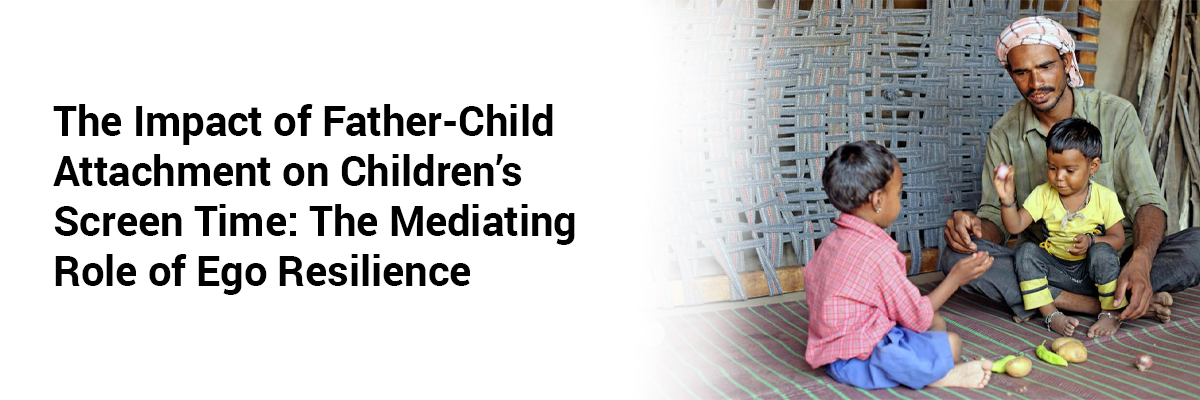
The Impact of Father-Child Attachment on Childrens Screen Time: The Mediating Role of Ego Resilience
Children devote a significant portion of their time to sedentary activities, which are defined as those that do not remarkably accelerate energy expenditure above resting levels. Examples of such activities include playing video or computer games and watching television, which has become a serious public health concern. As this is considered as a stage of development, which is critical for forming lifestyle choices that can affect a range of health consequences in adulthood and beyond. The current study evaluated the connections between kids' screen use, ego resilience, and parent-child attachment.
This cross-sectional correlational study analyzed data from 1,163 parents and their children. A modified version of the Armsden and Greenberg scale were used to determine parent-child attachment, alongside a revised children’s ego resilience scale based on the work of Block and Kremen. Children's screen time was categorized as exceeding 2 hours per day spent on television, computer, or video games during leisure time.
The findings of the study revealed the following:
- A negative association was observed between father-child attachment and children’s screen time while a positive association was seen between father-child attachment and ego resilience.
- After controlling for parental attachment, ego resilience displayed a negative relationship with children’s screen time.
- The association between father-child attachment and children’s screen time (ß = -0.36, p < .001) persisted, although its strength was slightly diminished after considering ego resilience.
The study highlighted the mediating effect of ego resilience on the negative relationship between father-child attachment and children’s screen time. This underscores the importance of nurturing strong father-child bonds and enhancing children’s psychological resilience as essential strategies for curbing excessive screen time. Therefore, interventions can more effectively foster healthier behavioral outcomes in children, by focusing on their emotional support and resilience development.
Source: Yang HM, Kim HR. Father-child attachment on children’s screen time: mediating role of ego resilience. BMC Pediatr. 2024;24, 672. https://doi.org/10.1186/s12887-024-05148-5














Please login to comment on this article